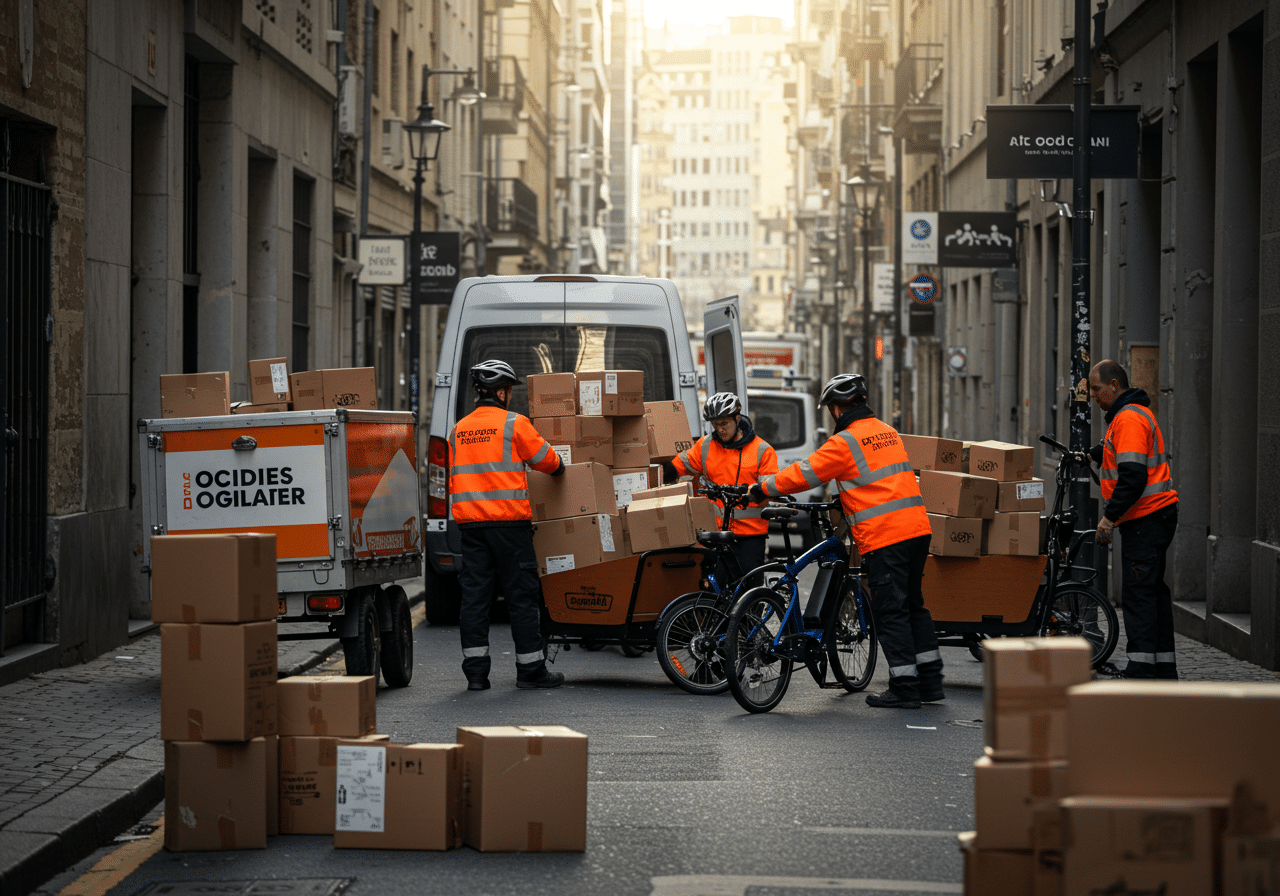The rapid rise of e-commerce and growing urban congestion have forced logistics companies to rethink traditional delivery methods. Urban micro-hubs are emerging as a game-changing solution, making last-mile delivery more efficient, sustainable, and cost-effective. As cities push for greener transportation and businesses seek faster delivery options, micro-hubs are proving to be the missing link between warehouses and final destinations.
What Are Urban Micro-Hubs?
Urban micro-hubs are strategically placed distribution centers located within city limits. Unlike large suburban warehouses, these hubs act as intermediary points where goods are sorted and prepared for delivery to their final destinations. By reducing the distance that delivery vehicles need to travel, micro-hubs improve efficiency while minimizing environmental impact. Instead of relying on large trucks that contribute to congestion, companies can use smaller, eco-friendly alternatives like eCargo bikes and electric vans.
The Impact of Micro-Hubs on Urban Logistics
One of the biggest challenges in modern logistics is urban traffic congestion. With more online orders than ever, traditional delivery methods often struggle to meet growing demand while keeping costs low. Micro-hubs address this by positioning goods closer to customers, cutting down on delivery times and reducing unnecessary travel.
In addition to efficiency, micro-hubs contribute to sustainability efforts. Many cities are implementing low-emission zones, making it more difficult for traditional delivery trucks to operate freely. Micro-hubs allow companies to adapt by utilizing green delivery vehicles, such as cargo bikes and electric vans, which comply with new regulations while reducing carbon footprints.
Another significant advantage of micro-hubs is cost savings. Maintaining large warehouses outside urban areas means higher transportation expenses for each delivery. By contrast, micro-hubs reduce the need for long-distance travel and optimize routes, cutting down on fuel costs, labor, and vehicle maintenance.
The Role of eCargo Bikes in Micro-Hub Logistics
eCargo bikes have become an essential component of micro-hub logistics. These pedal-assisted vehicles allow delivery personnel to navigate congested city streets quickly, making them a viable alternative to traditional vans. Companies like Fernhay are leading this transformation, offering cutting-edge cargo bike solutions that seamlessly integrate with urban micro-hubs.
By leveraging eCargo bikes, businesses can complete more deliveries in less time while avoiding the delays caused by traffic congestion. They also provide a cost-effective way to comply with sustainability goals, as they produce zero emissions and require significantly less maintenance than motorized vehicles. As cities become more bike-friendly, these solutions will only become more practical and widespread.
Challenges and the Future of Micro-Hubs
Despite their advantages, implementing micro-hubs comes with challenges. Finding available space within cities is one of the biggest hurdles, as urban real estate is often expensive and limited. However, governments and businesses are exploring creative solutions such as repurposing vacant buildings and underutilized parking lots to serve as micro-hub locations.
Another challenge is coordination between multiple logistics providers. Micro-hubs require seamless collaboration between retailers, couriers, and technology platforms to operate efficiently. Advances in AI-driven logistics and real-time inventory management are helping to bridge this gap, making it easier for businesses to integrate micro-hubs into their existing supply chains.
Looking ahead, the adoption of urban micro-hubs will continue to grow as e-commerce expands and cities push for greener logistics solutions. Governments are likely to invest more in micro-hub infrastructure, and businesses that embrace this model early will gain a competitive edge in an increasingly crowded market.
Final Thoughts: The Next Step in Urban Logistics
Urban micro-hubs are reshaping last-mile delivery, making logistics more efficient, cost-effective, and sustainable. As businesses and cities seek innovative ways to reduce congestion and improve delivery services, micro-hubs offer a practical and forward-thinking solution.
Want to Transform Your Last-Mile Delivery?
Fernhay specializes in eCargo bike and micro-hub solutions designed for the future of logistics. Contact us today to learn how we can help you build a faster, greener, and smarter last-mile delivery network.

